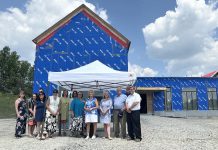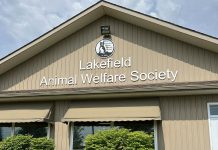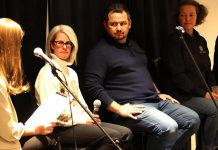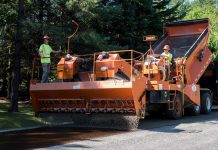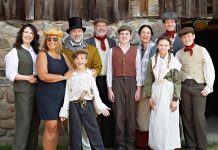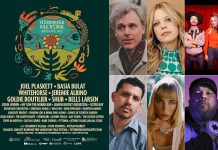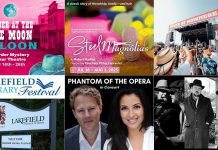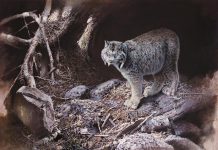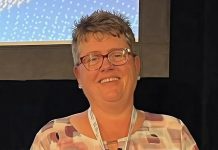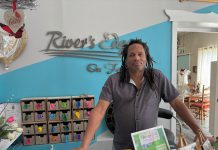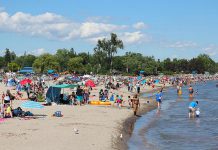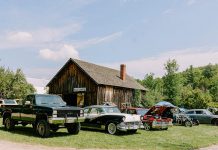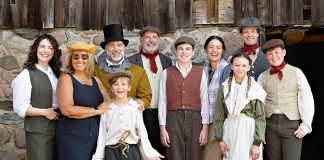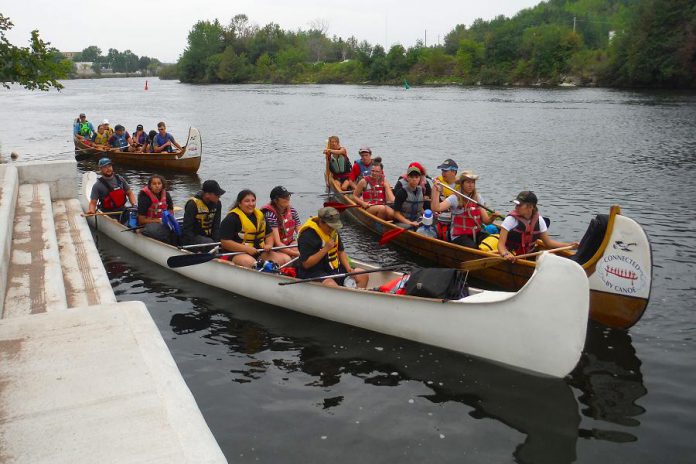
What started as a simple endeavour has remained just that and, according to its principal organizer, therein lies its success.
The Adventure In Understanding Canoe Trip, just completed for a fifth time, saw 20 First Nations and non-native youths aged 16 to 18 years old complete a 100-kilometre canoe trek from Beavermead Park to Curve Lake First Nation.
Developed by the Rotary Club of Peterborough Kawartha in partnership with the Canadian Canoe Museum, Camp Kawartha, and Curve Lake First Nation, the six day and five night trek departed from Beavermead Park on Sunday, August 26th and concluded on Friday, August 31st with a celebratory feast and ceremonial tree planting in Curve Lake.
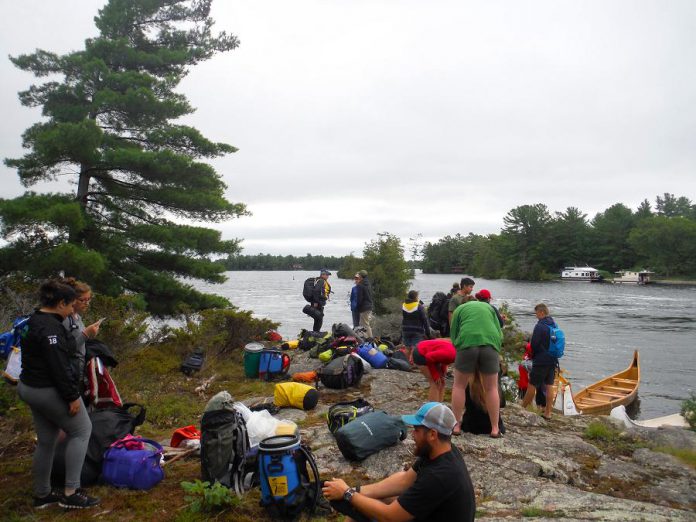
Highlights of the trip included going through the Peterborough Lift Lock, experiencing the “teaching rocks” at Petroglyphs Provincial Park, and visiting with Black Duck Wild Rice owner/operator James Whetung to learn about how he has collected and processed wild rice over the past 25 years. In addition, participants played native games, practiced native skills, and swam, sung and shared stories with one another.
“It’s such a simple idea … it amazes me that people are surprised we (Rotary) are doing it,” says Rotarian Don Watkins, at whose initiation The Adventure In Understanding Canoe Trip became a fill-fledged club project.
“There are lots of programs around where the police or somebody like that will take kids who are at risk off on a wilderness camping trip. This is different. This is designed for kids who are confident in themselves and are prepared to discuss their First Nations background and their non-native background.”
With musician, puppeteer, and storyteller Glen Caradus serving as the on-water leader — assisted by three swimming- and canoeing-certified adult supervisors — the trip, says Watkins, represents “a chance to bring First Nations and non-native youths together” in environment where they must work together and, more notably, share a unique experience.
VIDEO: Adventure In Understanding 2017
“One of the first things I read and have heard about the reconciliation process that has to happen is people have to start talking to each other,” says Watkins.
“We need to reach out and say hello to our neighbours. There’s a lot of time when you’re sitting beside somebody in a canoe travelling for 100 kilometres. That’s a lot of time to be quiet, so why not start talking to the person beside you?”
The three Voyageur canoes that made up the trek flotilla this time around were home to a cross-section of youths from Canada and beyond, notes Watkins, including eight First Nations youths. Three trip participants hailed from Nova Scotia and one each came here from Australia, New Zealand, and Mexico.
It was back in 2012 that the idea for trip was encouraged by two separate occurrences, Watkins explains. First, acclaimed novelist Joseph Boyden, best known for writing about First Nations culture, visited Peterborough. Within a short time of that, adds Watkins, Canadian Canoe Museum executive director, author, and geographer James Raffan talked of the canoe’s prominent role in the flotilla that traversed the Thames River as part of Queen Elizabeth’s Diamond Jubilee.
“We have this river that goes through Peterborough,” recalls Watkins of his thinking at the time. “Why don’t we use one of these large canoes and put First Nations and non-native youths together for six days and five nights and have them learn from each other?”
Along with fellow Rotarian Janet McLeod, Watkins approached Curve Lake First Nation Chief Phyllis Williams to get her agreement with the idea. Raffan and Camp Kawartha executive director Jacob Rodenburg were also approached for their assistance and jumped fully on board.
That led to the first Adventure In Understanding Canoe Trip that saw four youths make the trek in one Voyageur Canoe. That number grew to 11 for second trip and has stayed at 20 since.
“Our goal is to keep it at 20; we don’t want the group to be so large that participants can’t have a personal relationship with each other,” says Watkins, noting participants are determined on a first come, first served basis.
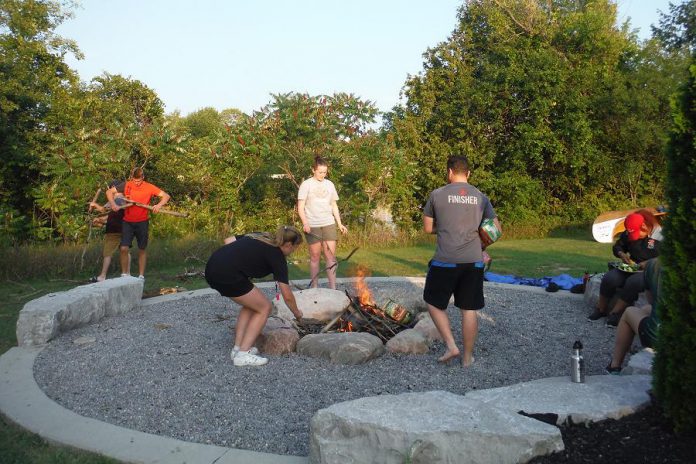
How it works is that on February 1st each year, Watkins sends an email to Rotary clubs across the country saying applications for the trip are being accepted. Interested Rotary clubs pay the full expenses of youths in their respective areas who apply and are accepted.
Trip participation has a life-changing impact on the youths involved, says Watkins.
“Three girls from Pelican Narrows in northern Saskatchewan were on the trip a year ago. I saw a Facebook posting afterwards from one that read ‘I think about that trip every day.’ This spring, I was down in Cornwall and there was a girl who said ‘There are First Nations people in my high school and, as a result of the trip, I look at them differently than I did.’ Some of the kids finish the trip wanting to take Indigenous Studies.”
Watkins adds that he too has been greatly impacted by his involvement.
“When I go to the library, I’m often looking for First Nations-related books. I went to Alderville’s pow wow. Curve Lake was a name on a sign pointing left when I was going to Buckhorn — I knew it was there but I really knew nothing about it.
“Once I became involved in this project and started visiting Curve Lake and being involved with Chief Williams and the people at the cultural centre there, my whole life experience changed. It’s an adventure not only for the kids that go on the canoe trip but for me as well.”
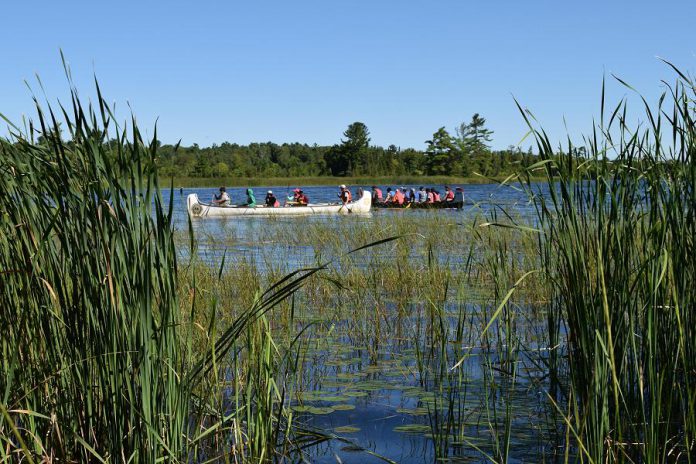
The focus now, says Watkins, is spreading word of the program’s success throughout his Rotary district, in the hopes that other clubs will pursue projects that will bring them in closer contact with First Nations communities.
“There are 41 clubs in our district and more than 30 of them are close to a First Nations neighbour,” he says.
“My goal besides, what I’m doing with this club, is to start talking to some those clubs to ask ‘Can you reach out to your First Nations neighbour? Is there something appropriate in your community that you can do to build a better relationship?’ The club is quite willing to have me continue to do this for some time. My challenge now is to spread this idea to other clubs.
A Rotary member since 1974, Watkins became a member of the service club in Tillsonburg and then joined the Peterborough club when he returned to his hometown of Peterborough in 1995.
“That’s a lot of chicken suppers,” he jokes, adding he hasn’t made the canoe trip yet and the likelihood of that happening is slim to none.
“My camping is limited to the Holiday Inn. My parents had a cottage and I canoed but that was years ago. I haven’t been on a trip like this since 1964.”
For information about the Adventure In Understanding canoe trip, visit pkaiu.com.
Editor’s note: The Adventure In Understanding program is open to all youth, whether related to Rotarians or not. While many of the youth who have participated in the program have been sponsored by Rotary Clubs, the program also accepts registrations from individuals.


